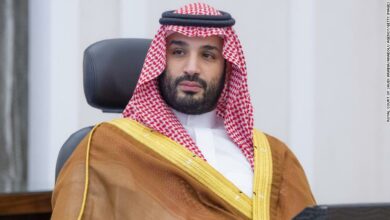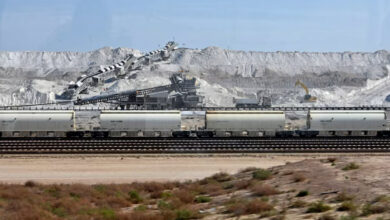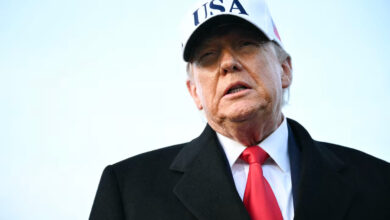RIYADH – Saudi police clashed with protesters in the country's Shia-dominated eastern region in a new ripple of unrest in the oil-rich kingdom, residents and security officials said Tuesday.
Police moved in on Monday to break up a second day of small protests against the arrests of the fathers of two fugitive dissidents, firing in the air and beating marchers with clubs, residents said.
The Interior Ministry blamed what it described as "seditious" residents, saying they attacked security forces with guns and firebombs and had the backing of a foreign enemy – an apparent reference to rival power Iran.
There is a long history of discord between the kingdom's Sunni rulers and the Shia minority concentrated in the east, Saudi Arabia's key oil-producing region. Shias make up 10 percent of the kingdom's 23 million citizens and complain of discrimination, saying they are barred from key positions in the military and government and are not given an equal share of the country's wealth.
As uprisings against autocratic rulers began to sweep the Arab world, small protests were held in eastern Saudi Arabia during the first three months of the year but were largely quelled.
Ultraconservative Saudi Arabia is deeply wary of the wave of Arab Spring uprisings, particularly in nearby Bahrain, where a Shia majority is demanding greater rights from its Sunni rulers. Earlier this year, Saudi Arabia led a Gulf military force that intervened in Bahrain to help the ruling family quell the revolt.
At home, the Saudi government announced an unprecedented economic package worth an estimated $36 billion to give Saudis interest-free home loans, unemployment assistance and debt forgiveness.
In the new unrest, the Interior Ministry said its forces came under attack on Monday from activists armed with guns and firebombs. Some of the attackers rode in on motorcycles, it said. The clash in the town of al-Awamiya wounded 11 security officers and three civilians, said a ministry statement carried by the official Saudi Press Agency.
Forces dispersed the crowd but were then fired on from a nearby building. A firebomb was also lobbed at them, the statement said.
A security official speaking to AP on condition of anonymity because he was not authorized to talk to the press said an unspecified number of demonstrators had been arrested and were under interrogation to determine from where they got their weapons.
"They carried out acts against the law following instructions from a foreign country that aims to harm the country's stability and security," the statement said. It didn't name the country, but the kingdom is concerned about the expanding influence from Shiite power Iran.
"They must decide clearly if their loyalty lies with God and their country or if it is with that country and its religious authorities," the strongly worded statement said.
The ministry said it would "strike with an iron fist" anyone who "infringed on the country's sovereignty."
Al-Awamiya residents speaking to AP on condition of anonymity out of fear of reprisal said protests started on Sunday after authorities detained the fathers of two activists wanted for their part in earlier unrest.
Neighbors came out onto the streets carrying posters of Iran's late Ayatollah Ruhollah Khomeini and Lebanon's Hassan Nasrallah, the leader of Hezbollah, they said.
In Monday's confrontations, protesters threw stones and damaged vehicles in response to the police crackdown, residents said. They made no mention of weapons carried by the crowd of about 50 protesters.
Responding to the unrest spreading from North Africa to the Arabian side of the Gulf, Saudi Arabia warned earlier this year that demonstrations were forbidden in the kingdom, arguing that they contradict Islamic laws and society's values. It also said security forces were authorized to act against anyone violating the protest ban.
Nonetheless, besides the Shiite protests, the Arab uprisings have inspired a group of Saudi women to protest the ban on female drivers in the kingdom. Scores of women have gotten behind the wheel this summer in a few Saudi cities.




